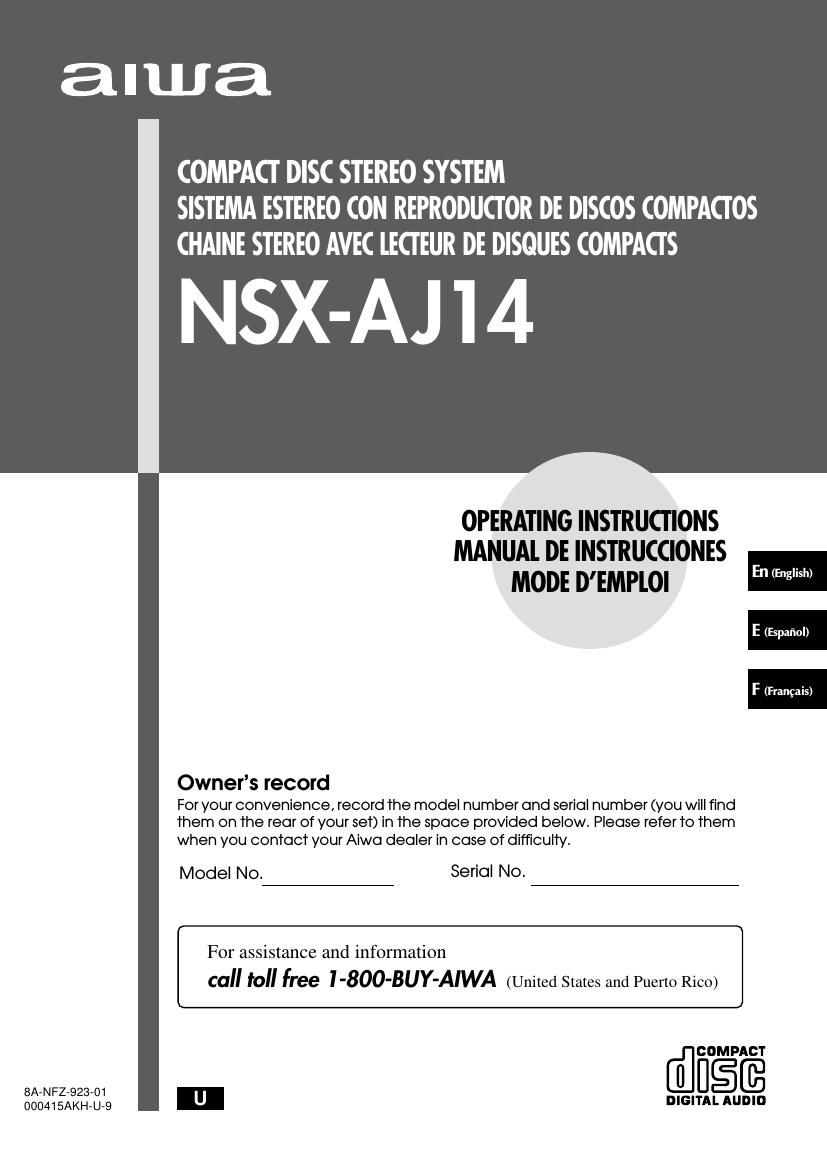Aiwa NSX AJ14 Owners Manual
This is the 56 pages manual for Aiwa NSX AJ14 Owners Manual.
Read or download the pdf for free. If you want to contribute, please upload pdfs to audioservicemanuals.wetransfer.com.
Page: 1 / 56
